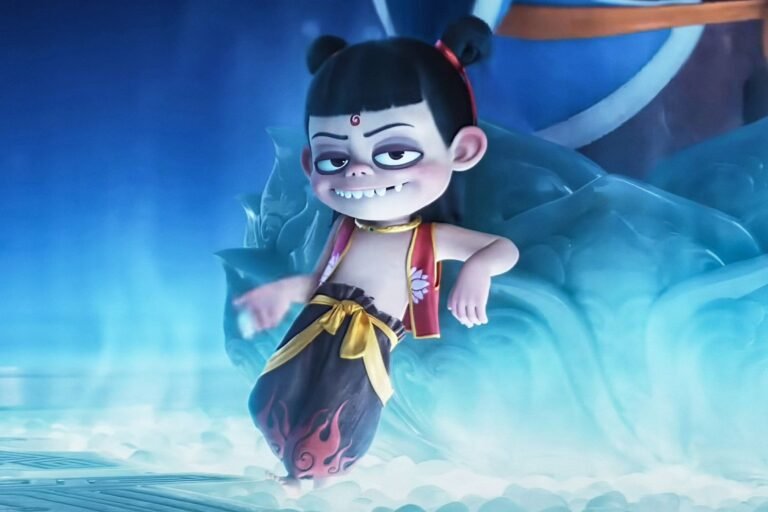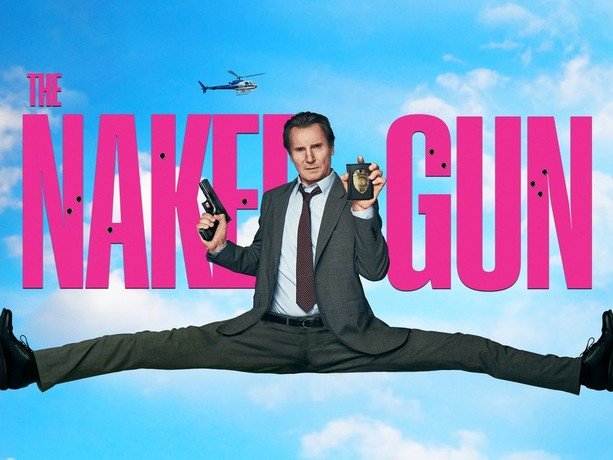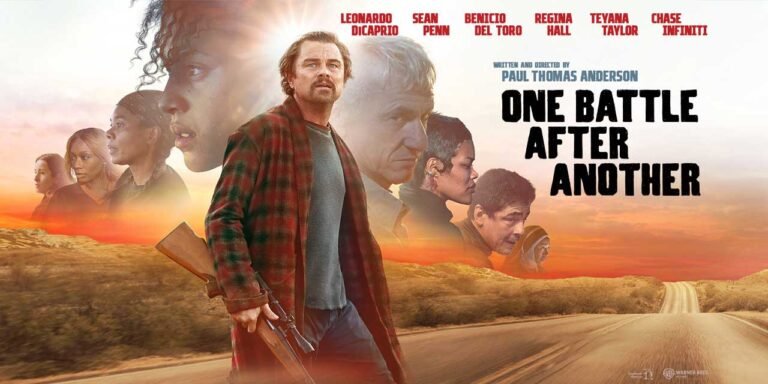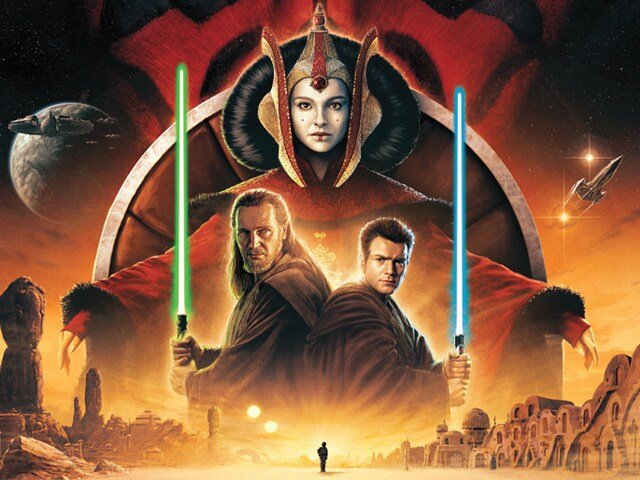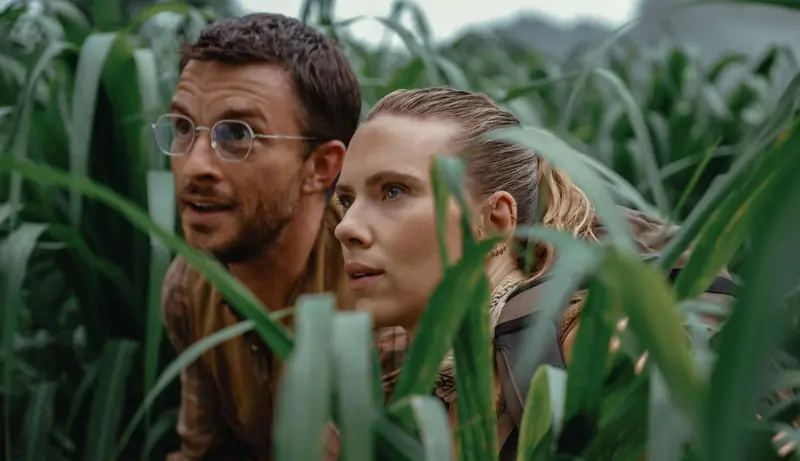
When Jurassic World: Rebirth was first announced, it sounded like a promising new chapter in the iconic dino-driven franchise. With a stellar cast featuring Scarlett Johansson, Mahershala Ali, Rupert Friend, and Jonathan Bailey, and a premise rooted in ethical dilemmas and genetic science, the stage seemed set for a compelling evolution of the Jurassic saga.
Unfortunately, what unfolds is a muddled, CGI-heavy adventure that fails to capture the spirit, storytelling, and wonder of the original Jurassic Park. Despite the high production values and A-list cast, Rebirth struggles with direction, narrative focus, and a reliance on spectacle over substance.
A Promising Concept Lost in Execution
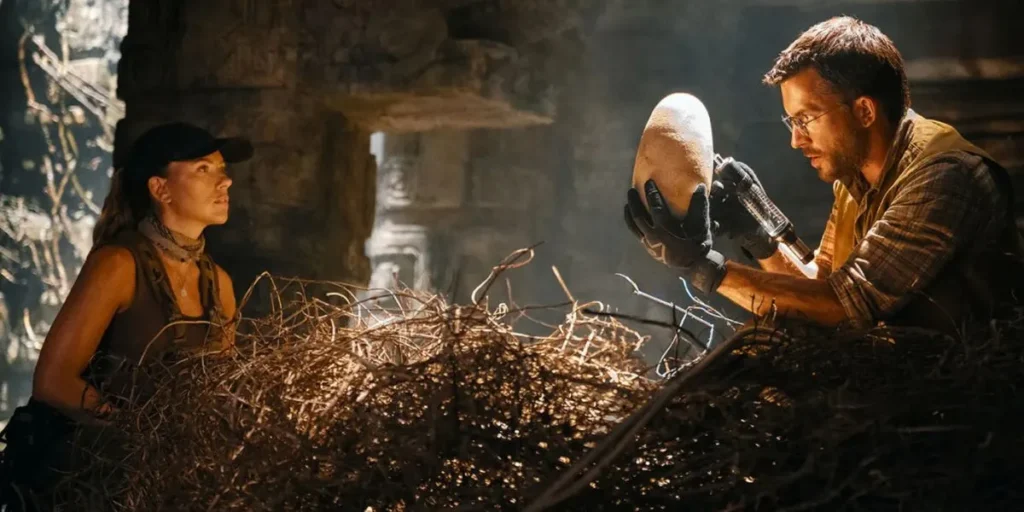
The plot centers on a pharmaceutical executive (Rupert Friend) who hires a mercenary (Scarlett Johansson) to escort a covert expedition into the Ecuadorian jungle—now home to the genetically resurrected dinosaurs. The mission: collect DNA samples from three distinct prehistoric creatures (air, sea, and land) to advance radical new medical treatments.
On paper, it’s a fascinating setup with the potential to explore bioethics, corporate greed, and human interference with nature. In execution, however, it unravels into a chaotic series of action set pieces disconnected from its deeper themes.
Convoluted Plot and Shallow Characters
The story adds a family-of-survivors subplot (a father and his two daughters stranded in dinosaur territory) that feels forced and distracting. The characters, while portrayed by capable actors, are frustratingly underdeveloped. Johansson’s mercenary lacks emotional depth or a backstory; Mahershala Ali’s expedition leader is given minimal screen time; and even the leading scientist (Bailey) and executive (Friend) fail to evolve beyond archetypes.
Despite screenwriter David Koepp returning—the same writer who penned 1993’s Jurassic Park—the script feels uninspired, overly expository, and even clumsy. Dialogue often feels like placeholders, and plot twists lack the impact needed to drive the story forward.
Visuals Overload, But Magic Is Missing
Like many modern blockbusters, Jurassic World: Rebirth leans heavily on CGI, often at the expense of immersion. While the visual effects are undeniably slick, they lack the tactile realism that made the original film’s animatronics so awe-inspiring. Constant attempts to outdo past films with even larger and more dangerous dinosaur hybrids fall flat, making the danger feel exaggerated rather than thrilling.
Instead of crafting suspense or awe, Rebirth bombards viewers with relentless action—resulting in visual fatigue. The film’s effort to impress through scale backfires, making each dinosaur encounter feel less meaningful.
A Franchise in Decline?
One of the most troubling aspects of Jurassic World: Rebirth is how it mirrors a larger trend in Hollywood: franchises stretched thin by studios chasing diminishing returns. This installment feels like a product of boardroom decisions rather than passionate storytelling. The moral complexities of genetic exploitation, pharmaceutical ethics, and eco-responsibility are brushed aside in favor of mindless spectacle.
Even the legacy of the Jurassic name can’t save Rebirth from feeling like a pale imitation of its predecessors.
Wasted Talent, Missed Opportunities
The cast is filled with Oscar-nominated talent and fan favorites. Scarlett Johansson and Mahershala Ali deserved richer roles. Instead, they’re buried under exposition and generic action sequences. Characters are barely given time to breathe or grow, leaving the actors with little material to elevate.
The same can be said of David Koepp’s screenplay, which, despite his pedigree, lacks the cohesion and charm of his earlier work. It’s baffling that the same writer who once captured the essence of wonder and fear in Jurassic Park would deliver a script so formulaic.
Final Verdict: A Forgettable Entry with a Fading Legacy
Jurassic World: Rebirth is a film built on a shaky foundation of nostalgia, weak character development, and spectacle over story. While the premise had the potential to advance the franchise in a thought-provoking and exciting direction, the result is a disappointing, disjointed chapter that fails to justify its existence.
Fans of the original Jurassic Park may find little here to enjoy beyond superficial dinosaur action. And new viewers likely won’t find enough emotional or narrative weight to invest in future sequels. The franchise, once known for innovation and awe, is now teetering on the edge of extinction—not because of lack of interest, but from creative exhaustion.
